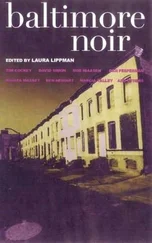Owen Wister - Lady Baltimore
Здесь есть возможность читать онлайн «Owen Wister - Lady Baltimore» весь текст электронной книги совершенно бесплатно (целиком полную версию без сокращений). В некоторых случаях можно слушать аудио, скачать через торрент в формате fb2 и присутствует краткое содержание. Жанр: Вестерн, на английском языке. Описание произведения, (предисловие) а так же отзывы посетителей доступны на портале библиотеки ЛибКат.
- Название:Lady Baltimore
- Автор:
- Жанр:
- Год:неизвестен
- ISBN:нет данных
- Рейтинг книги:5 / 5. Голосов: 1
-
Избранное:Добавить в избранное
- Отзывы:
-
Ваша оценка:
- 100
- 1
- 2
- 3
- 4
- 5
Lady Baltimore: краткое содержание, описание и аннотация
Предлагаем к чтению аннотацию, описание, краткое содержание или предисловие (зависит от того, что написал сам автор книги «Lady Baltimore»). Если вы не нашли необходимую информацию о книге — напишите в комментариях, мы постараемся отыскать её.
Lady Baltimore — читать онлайн бесплатно полную книгу (весь текст) целиком
Ниже представлен текст книги, разбитый по страницам. Система сохранения места последней прочитанной страницы, позволяет с удобством читать онлайн бесплатно книгу «Lady Baltimore», без необходимости каждый раз заново искать на чём Вы остановились. Поставьте закладку, и сможете в любой момент перейти на страницу, на которой закончили чтение.
Интервал:
Закладка:
"That is the old, old story," he said.
"Yes; is there anything new under the sun?"
He was gloomy. "Nothing, I suppose." Then the gloom lightened. "Nothing new under the sun — except the fashionable families of Newport!"
This again brought us from the clouds of speculation down to Worship Street, where we were walking toward South Place. It also unexpectedly furnished me with the means to lead back our talk so gently, without a jolt or a jerk, to my moral and the delicate topic of matrimony from which he had dodged away, that he never awoke to what was coming until it had come. He began pointing out, as we passed them, certain houses which were now, or had at some period been, the dwellings of his many relatives: "My cousin Julia So-and-so lives there," he would say; or, "My great-uncle, known as Regent Tom, owned that before the War"; and once, "The Rev. Joseph Priedieu, my great-grandfather, built that house to marry his fifth wife in, but the grave claimed him first."
So I asked him a riddle. "What is the difference between Kings Port and Newport?"
This he, of course, gave up.
"Here you are all connected by marriage, and there they are all connected by divorce."
"That's true!" he cried, "that's very true. I met the most embarrassingly cater-cornered families."
"Oh, they weren't embarrassed!" I interjected.
"No, but I was," said John.
"And you told me you weren't innocent!" I exclaimed. "They are going to institute a divorce march," I continued. "'Lohengrin' or 'Midsummer-Night's Dream' played backward. They have not settled which it is to be taught in the nursery with the other kindergarten melodies."
He was still unsuspectingly diverted; and we walked along until we turned in the direction of my boarding-house.
"Did you ever notice," I now said, "what a perpetual allegory 'Midsummer-Night's Dream' contains?"
"I thought it was just a fairy sort of thing."
"Yes, but when a great poet sets his hand to a fairy sort of thing, you get — well, you get poor Titania."
"She fell in love with a jackass," he remarked. "Puck bewitched her."
"Precisely. A lovely woman with her arms around a jackass. Does that never happen in Kings Port?"
He began smiling to himself. "I'm afraid Puck isn't all dead yet."
I was now in a position to begin dropping my bitters. "Shakespeare was probably too gallant to put it the other way, and make Oberon fall in love with a female jackass. But what an allegory!"
"Yes," he muttered. "Yes."
I followed with another drop. "Titania got out of it. It is not always solved so easily."
"No," he muttered. "No." It was quite evident that the flavor of my bitters reached him.
He was walking slowly, with his head down, and frowning hard. We had now come to the steps of my boarding-house, and I dropped my last drop. "But a disenchanted woman has the best of it — before marriage, at least."
He looked up quickly. "How?"
I evinced surprise. "Why, she can always break off honorably, and we never can, I suppose."
For the third time this day he made me an astonishing rejoinder: "Would you like to take orders from a negro?"
It reduced me to stammering. "I have never — such a juncture has never—"
"Of course you wouldn't. Even a Northerner!"
His face, as he said this, was a single glittering piece of fierceness. I was still so much taken aback that I said rather flatly: "But who has to?"
"I have to." With this he abruptly turned on his heel and left me standing on the steps. For a moment I stared after him; and then, as I rang the bell, he was back again; and with that formality which at times overtook him he began: "I will ask you to excuse my hasty—"
"Oh, John Mayrant! What a notion!"
But he was by no means to be put off, and he proceeded with stiffer formality: "I feel that I have not acted politely just now, and I beg to assure you that I intended no slight."
My first impulse was to lay a hand upon his shoulder and say to him: "My dear fellow, stuff and nonsense!" Thus I should have treated any Northern friend; but here was no Northerner. I am glad that I had the sense to feel that any careless, good-natured putting away of his deliberate and definitely tendered apology would seem to him a "slight" on my part. His punctilious value for certain observances between man and man reached me suddenly and deeply, and took me far from the familiarity which breeds contempt.
"Why, John Mayrant," I said, "you could never offend me unless I thought that you wished to, and how should I possibly think that?"
"Thank you," he replied very simply.
I rang the bell a second time. "If we can get into the house," I suggested, "won't you stop and dine with me?"
He was going to accept. "I shall be—" he had begun, in tones of gratification, when in one instant his face was stricken with complete dismay. "I had forgotten," he said; and this time he was gone indeed, and in a hurry most apparent. It resembled a flight.
What was the matter now? You will naturally think that it was an appointment with his ladylove which he had forgotten; this was certainly my supposition as I turned again to the front door. There stood one of the waitresses, glaring with her white eyes half out of her black face at the already distant back of John Mayrant.
"Oh!" I thought; but, before I could think any more, the tall, dreadful boarder — the lady whom I secretly called Juno — swept up the steps, and by me into the house, with a dignity that one might term deafening.
The waitress now muttered, or rather sang, a series of pious apostrophes. "Oh, Lawd, de rampages and de ructions! Oh, Lawd, sinner is in my way, Daniel!" She was strongly, but I think pleasurably, excited; and she next turned to me with a most natural grin, and saying, "Chick'n's mos' gone, sah," she went back to the dining room.
This admonition sent me upstairs to make as hasty a toilet as I could.
IX: Juno
Each recent remarkable occurrence had obliterated its predecessor, and it was with difficulty that I made a straight parting in my hair. Had it been Miss Rieppe that John so suddenly ran away to? It seemed now more as if the boy had been running away from somebody. The waitress had stared at him with extraordinary interest; she had seen his bruise; perhaps she knew how he had got it. Her excitement — had he smashed up his official superior at the custom house? That would be an impossible thing, I told myself instantly; as well might a nobleman cross swords with a peasant. Perhaps the stare of the waitress had reminded him of his bruise, and he might have felt disinclined to show himself with it in a company of gossiping strangers. Still, that would scarcely account for it — the dismay with which he had so suddenly left me. Was Juno the cause — she had come up behind me; he must have seen her and her portentous manner approaching — had the boy fled from her?
And then, his fierce outbreak about taking orders from a negro when I was moralizing over the misfortune of marrying a jackass! I got a sort of parting in my hair, and went down to the dining room.
Juno was there before me, with her bonnet, or rather her headdress, still on, and I heard her making apologies to Mrs. Trevise for being so late. Mrs. Trevise, of course, sat at the head of her table, and Juno sat at her right hand. I was very glad not to have a seat near Juno, because this lady was, as I have already hinted, an intolerable person to me. Either her Southern social position or her rent (she took the whole second floor, except Mrs. Trevise's own rooms) was of importance to Mrs. Trevise; but I assure you that her ways kept our landlady's cold, impervious tact watchful from the beginning to the end of almost every meal. Juno was one of those persons who possess so many and such strong feelings themselves that they think they have all the feelings there are; at least, they certainly consider no one's feelings but their own. She possessed an inexhaustible store of anecdote, but it was exclusively about our Civil War; you would have supposed that nothing else had ever happened in the world. When conversation among the rest of us became general, she preserved a cold and acrid inattention; when the fancy took her to open her own mouth, it was always to begin some reminiscence, and the reminiscence always began: "In September, 1862, when the Northern vandals," etc., etc., or "When the Northern vandals were repulsed by my husband's cousin, General Braxton Bragg," etc., etc. Now it was not that I was personally wounded by the term, because at the time of the vandals I was not even born, and also because I know that vandals cannot be kept out of any army. Deeply as I believed the March to the Sea to have been imperative, of "Sherman's bummers" and their excesses I had a fair historic knowledge and a very poor opinion; and this I should have been glad to tell Juno, had she ever given me the chance; but her immodest sympathy for herself froze all sympathy for her. Why could she not preserve a well-bred silence upon her sufferings, as did the other old ladies I had met in Kings Port? Why did she drag them in, thrust them, poke them, shove them at you? Thus it was that for her insulting disregard of those whom her words might wound I detested Juno; and as she was a woman, and nearly old enough to be my grandmother, it was, of course, out of the question that I should retaliate. When she got very bad indeed, it was calm Mrs. Trevise's last, but effective, resort to tinkle a little handbell and scold one of the waitresses whom its sound would then summon from the kitchen. This bell was tinkled not always by any means for my sake; other travellers from the North there were who came and went, pausing at Kings Port between Florida and their habitual abodes.
Читать дальшеИнтервал:
Закладка:
Похожие книги на «Lady Baltimore»
Представляем Вашему вниманию похожие книги на «Lady Baltimore» списком для выбора. Мы отобрали схожую по названию и смыслу литературу в надежде предоставить читателям больше вариантов отыскать новые, интересные, ещё непрочитанные произведения.
Обсуждение, отзывы о книге «Lady Baltimore» и просто собственные мнения читателей. Оставьте ваши комментарии, напишите, что Вы думаете о произведении, его смысле или главных героях. Укажите что конкретно понравилось, а что нет, и почему Вы так считаете.










